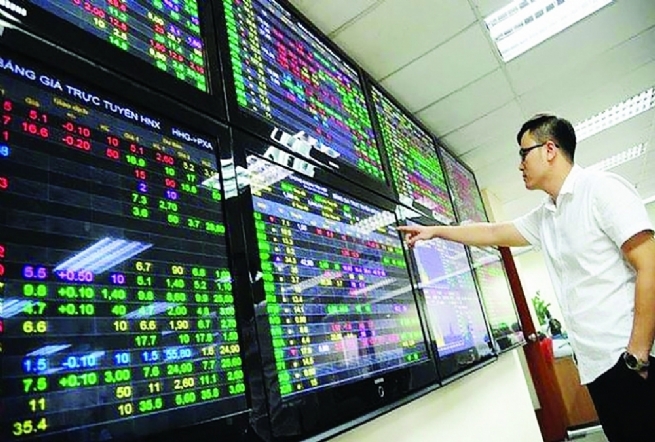Vietnam Poised for Market Upgrade, Promising Capital Growth
Vietnam’s stock market is expected to reach a major milestone in 2025 with a likely upgrade to emerging market status, opening the door to global capital and boosting sustainable economic growth.

Upgrading the stock market from frontier to emerging status has been a strategic priority for the Vietnamese government for years. If achieved, the upgrade would make Vietnam a key destination for major global investment funds.
Experts estimate that the upgrade could draw foreign capital inflows of US$5-7 billion, equivalent to over 1% of Vietnam’s GDP. This influx would not only enhance market liquidity and stability but also serve as a catalyst for sustained economic growth. Moreover, the upgrade is expected to improve stock liquidity and valuations, laying a solid foundation for the VN-Index to maintain steady long-term growth.
For businesses, the upgrade will boost opportunities to raise international capital through lower-cost, higher-valuation equity and bond issuances. It will enhance Vietnam’s global reputation, reduce perceived risks for international investors, and encourage domestic firms to improve transparency and governance to compete effectively on the global stage.
Dominic Scriven, Chairman of Dragon Capital, described the upgrade as a “game-changer” for Vietnam’s stock market. He noted that it would not only attract foreign capital but also incentivize local companies to elevate governance standards, thereby boosting competitiveness against regional peers like Thailand and Malaysia. He emphasized that global funds typically allocate significantly more capital to emerging markets than to frontier ones, offering Vietnam a chance to solidify its regional standing.
To meet the stringent criteria set by international organizations like FTSE Russell and MSCI, the State Securities Commission and relevant agencies have introduced key reforms, including Circular 68/2024/TT-BTC, which took effect in November 2024 and removed the 100% pre-funding requirement for foreign institutional investors. Circular 68 mandates listed companies to publish periodic reports in English starting in 2025, ensuring equal access to information for domestic and foreign investors. Another key reform is the KRX trading system, launched in late 2024, which enables same-day (T0) trading and accelerates capital turnover, enhancing transaction efficiency. The system has proven stable and contributed to increased liquidity in Q1 2025. Further reforms include adopting SWIFT transaction codes, simplifying indirect investment account procedures, and updating over-the-counter transactions, thus enhancing market access for foreign investors. Post-2025, a central counterparty clearing model is expected to be introduced, reducing settlement risks and aligning with international standards.
Nguyen Son, Chairman of the Vietnam Securities Depository and Clearing Corporation, affirmed that these reforms, meticulously prepared over the past 3-5 years, align with global best practices. He highlighted the removal of the pre-funding requirement as a pivotal step. This could lead FTSE Russell to upgrade Vietnam to secondary emerging market status in its September 2025 review.
Vietnam has met nearly all of FTSE Russell’s criteria regarding market size, liquidity and accessibility. In its April 2025 review, FTSE Russell kept Vietnam on the watchlist and indicated a likely upgrade, with a final decision expected in September 2025, with effect six months later if approved. Meanwhile, the path to MSCI’s emerging market status is more complex, with 18 rigorous criteria covering foreign ownership limits, forex liberalization, and equal rights for foreign investors. Vietnam currently meets 14 out of 18 MSCI criteria, with remaining issues related to foreign ownership limits and failed trade resolutions. Experts project MSCI may upgrade Vietnam by 2027.
The market upgrade will benefit not only foreign investors but also have far-reaching impacts on the broader economy. With nearly 90% of transactions driven by retail investors, a transparent and modern market will reduce volatility, protect investor interests and bolster confidence. For businesses, lower capital costs and access to international funding will fuel expansion and enhance competitiveness.
Financial expert Nguyen Tri Hieu noted that the upgrade could reduce Vietnam's dependence on bank credit, which strained the economy when monetary policy tightened in late 2022. An efficient capital market will better allocate resources to key sectors like technology, manufacturing and real estate, driving GDP growth. The year 2025 marks 25 years of Vietnam’s stock market journey since its inaugural trading session in July 2000. Over the past decade, the market has made remarkable strides. The VN-Index hit 1,245 points in April 2025 - 2.3 times its 2015 level. Market capitalization reached US$295 billion, up 20% from 2023 and more than six times its 2015 value. Trading accounts surpassed 9.5 million by March 2025, nearly 10% of the population, reflecting growing retail investor participation. Foreign investors held 48,000 accounts, with 12.4% from institutions, maintaining global appeal despite a record US$4 billion net sell-off in 2024.








